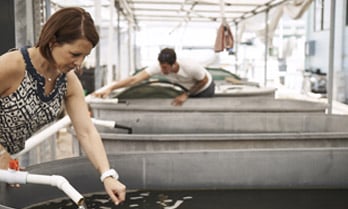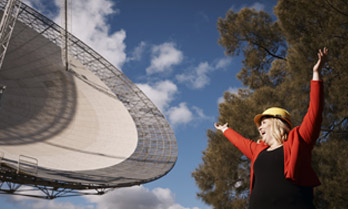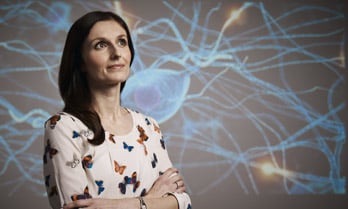







01 December 2022
Nanotechnology: the future of non-invasive early detection
We are all too familiar with how our breath can get us into trouble. Even without us knowing, the processes taking place in our bodies are creating gasses that come together to tell a story that we haven’t learnt how to read just yet.
But what if we could break down each component of our breath to understand what is happening behind the scenes? In the same way that dogs can detect happiness, stress, and even pregnancy from the way we smell, what if we too could find a way to understand our bodies without having to reach inside?
This is where Dr Noushin Nasiri steps in. Noushin is using nanotechnology to develop a new generation of cost-effective, miniaturised, yet powerful sensing technologies for recognising chemical molecules. Modelled on the structures of dog’s noses, Noushin’s sensors fit on the tip of your finger and will allow you to monitor your health from the comfort of your own home.
The idea of detecting disease by analysing human breath is not a new idea. In 400 BCE, Hippocrates mentioned that maybe breath aroma can be related to diseases, and it is this possibility of potentially inexpensive diagnosis that has inspired Dr Nasiri’s research.
“Most of us only go to see the doctor once a year for an hour, which means that there are more than 8,000 hours of the year that our health goes unchecked. Our healthcare system currently operates on a ‘sick care’ basis, meaning we are required to feel sick before we can seek treatment. But by the time we feel unwell, it is almost always too late to intervene,” said Dr Nasiri.
Apart from the mental and physical toll this sick care system has on us, the medical burden on diagnosis alone is ~$79bn per year in Australia.
Noushin will develop the first low-cost, portable sensing technology for precise detection of key markers in complex gas mixtures such as human breath. Noushin’s research will revolutionise our healthcare system, making healthcare accessible to all, and establishing the first step in screening for complex diseases—no needles necessary!